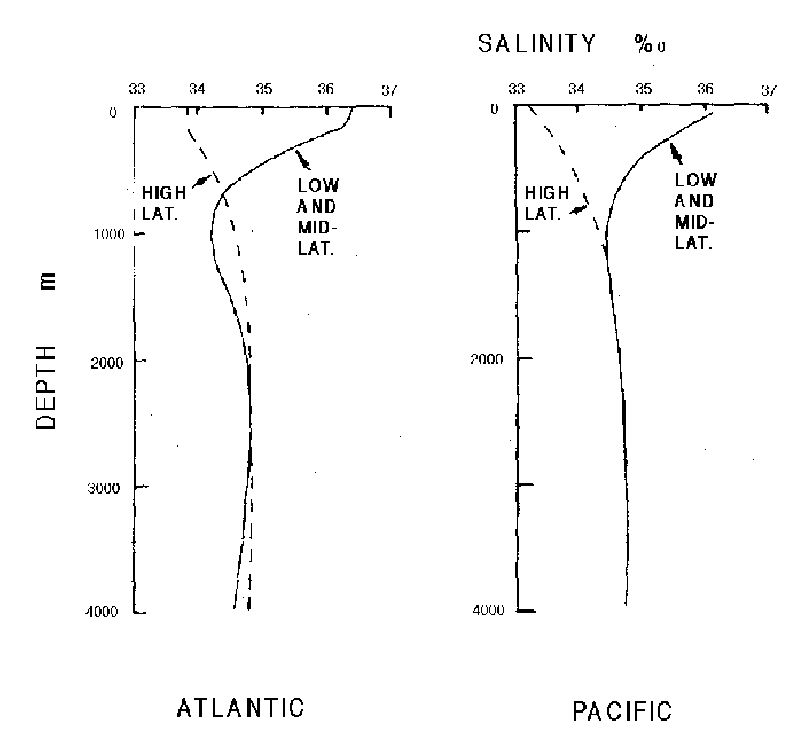
| MadSci Network: Earth Sciences |
Hi Jean:
That is a good question! Salinity is the amount of salt dissolved in a body of water. So if the sun shines down on the water and some of it evaporates, the salt is left behind and the water will become saltier. Similarly, if some fresh water is added, such as from rain or melting ice, the salt will be diluted and the water will be less salty.
Salinity does change with depth, but the way it changes depends very much on where one happens to be. That's because of another property of water, its density. Density is how "heavy" a parcel of water is. And "heavier" water tends to sink and stay below "lighter" water (have a look at this answer from our archives for a little more on how that works). The density of seawater depends mostly on how much salt is dissolved in it (more dissolved salt = "heavier" seawater), but temperature also has an effect (more on that in this archived answer).
So, if water has more salt in it, it will tend to be "heavy" and will tend to sink. And often there is an increase in salinity with an increase in depth. Here's a couple of generalized profiles of salinity in the Atlantic and Pacific Oceans:

So, in low latitudes (nearest the equator), it's actually usually saltier at the surface. That's because of evaporation. While you might expect "heavier", salty water to sink, the heat of the sun also warms the water and makes it "lighter". At higher latitutes (nearer the poles) salinity is usually lower at the surface, that's from all the freshwater added from rain and melting ice. In the north Atlantic, the surface water is quite fresh, but it gets so cold there in the water that the fresh water becomes "heavy", and sinks downwards. That's why you see a little "bulge" in the salinity profile for the Atlantic. That sinking of "heavier" water actually causes the movement of quite a lot of seawater over hundreds of years in a process called the thermohaline circulation.
I hope that helps!
Rob Campbell, MAD Scientist
*** Image reference: Pickard, George and William Emery. "Descriptive Physical Oceanography (5th Ed.)" Pergamon: 1990. 320pp.
Try the links in the MadSci Library for more information on Earth Sciences.